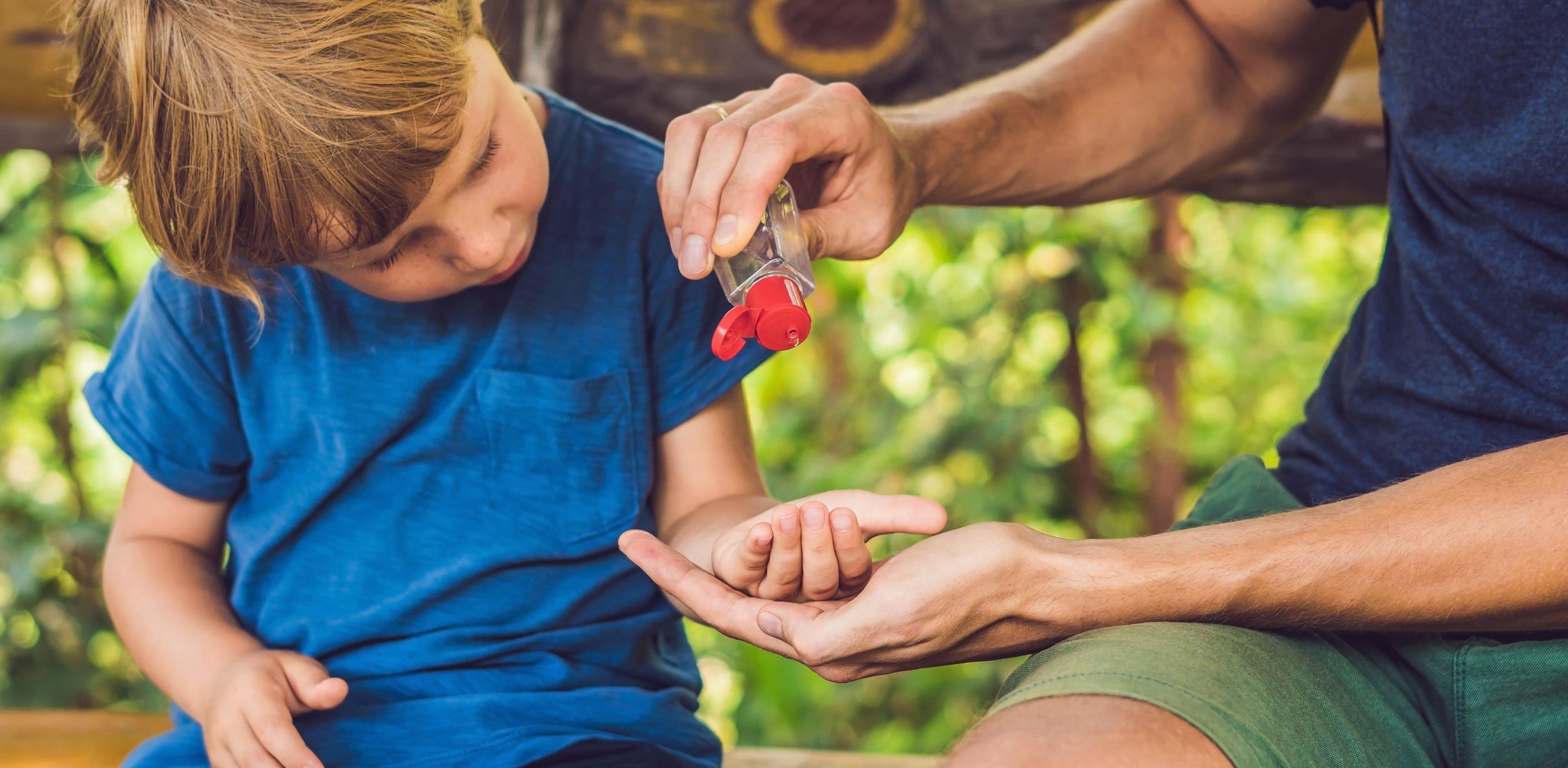Hand Sanitizers Lead to Fewer Infections, Antibiotics in Children

Young children are constantly wiping their noses and sticking their fingers in their mouths. Kids in daycare are forever bringing home germs and passing them along to the rest of the family. But a new study suggests that kids may develop fewer respiratory infections, miss less days of school, and reduce their chance of being prescribed an antibiotic if they use alcohol-based hand sanitizer instead of soap and water to clean their hands. [1]
Researchers in Spain studied 911 children up to age 3 who attended 24 daycare centers in Almeria, Spain. The children, their parents, and their daycare centers were divided into 3 groups:
- One group used hand sanitizer to clean their hands while following strict hygiene protocols.
- Another group used soap and water while following strict hygiene protocols.
- The 3rd group served as a control for the 8-month study and continued their normal hand-washing routines.
All 3 groups attended hand hygiene workshops before the study began. The hand-sanitizer and soap-and-water groups went to follow-up workshops where they were educated on respiratory infections and fevers, and received hygiene protocols for hand-washing before and after lunch, as they arrived home after coughing, sneezing, or blowing their noses.
Study Results
Researchers recorded 5,211 respiratory infections among the 911 children, resulting in 5,186 missed days of day care.
- The hand sanitizer group missed 3.25% days of day care; the soap group missed 3.9%, and the control group missed 4.2%.
- The soap and water group had a 21% increased risk of contracting a respiratory infection and a 31% higher risk of being prescribed an antibiotic, compared to the hand sanitizer group.
- The hand sanitizer group had a 23% reduced risk of contracting a respiratory infection, compared with those in the control group.
Dr. Don Goldmann, chief medical and scientific officer emeritus at the Institute of Healthcare Improvement, who was not involved with the study, said:
“I think that the main contribution of this paper is its focus on really young children in daycare. I think this does build on previous literature to support the notion that you can reduce the spread of respiratory tract infections in really young kids if you use alcohol hand sanitizer.”
Better than Triclosan-Based Hand Sanitizers

Alcohol-based hand sanitizers are considered safer and more effective than triclosan-based hand sanitizers, which are no longer sold on store shelves. The U.S. Food and Drug Administration (FDA) banned the use of triclosan in antimicrobial soaps after finding that the chemical – along with nearly 2 dozen others – were not “generally recognized as safe and effective” (GRASE) for use in over-the-counter (OTC) healthcare antiseptic products. [2]
Triclosan-containing antiseptic products were introduced to the market without first being subjected to pre-market reviews. Therefore, hand sanitizers and other products containing the chemical lacked sufficient safety and efficacy data.
Triclosan has been linked to antimicrobial-resistant superbugs in studies. Furthermore, research has shown triclosan to interfere with hormone regulation in animals. Plus, researchers say the ingredient isn’t any more effective at killing germs than plain old soap and water.
 Dr. Janet Woodcock, director of the FDA’s Center for Drug Evaluation and Research, said in a September 2016 press release: [3]
Dr. Janet Woodcock, director of the FDA’s Center for Drug Evaluation and Research, said in a September 2016 press release: [3]
“Antibacterial hand and body wash manufacturers did not provide the necessary data to establish safety and effectiveness for the 19 active ingredients addressed in this final rulemaking.
Consumers may think antibacterial washes are more effective at preventing the spread of germs, but we have no scientific evidence that they are any better than plain soap and water. In fact, some data suggests that antibacterial ingredients may do more harm than good over the long-term.”
Conflicting Evidence
While alcohol sanitizers have a better reputation, this notion may be slowly starting to change. A more recent study shows that these products, too, are breeding superbugs.
According to the U.S. Centers for Disease Control and Prevention (CDC), using soap and water is still the best way to wash your hands. However, the agency says that the use of hand sanitizer containing at least 60% alcohol is a good alternative. The CDC notes that hand sanitizers are not as effective when hands are visibly dirty or greasy. [4]
The study didn’t examine why alcohol hand sanitizers were more effective than soap and water for washing little hands. It’s possible that very young children simply don’t wash their hands thoroughly enough with soap and water.
Regardless, toddlers and preschool-age children should never be permitted to use hand sanitizers without adult supervision, as they may be tempted to put some of it in their mouths or they could get it in their eyes.
Sources:
[1] CNN
[2] U.S. Food and Drug Administration
[3] CBS News
[4] AJC
